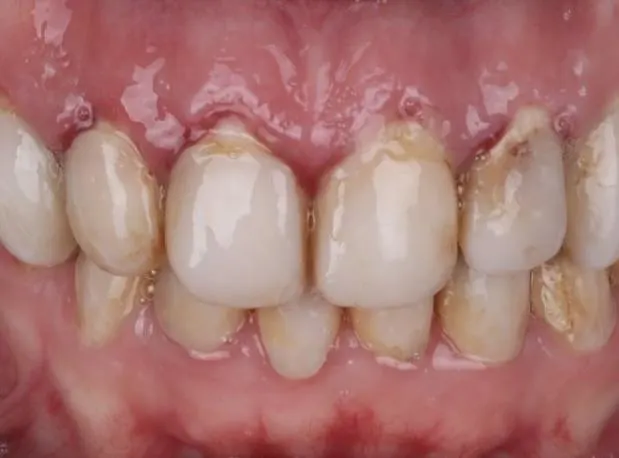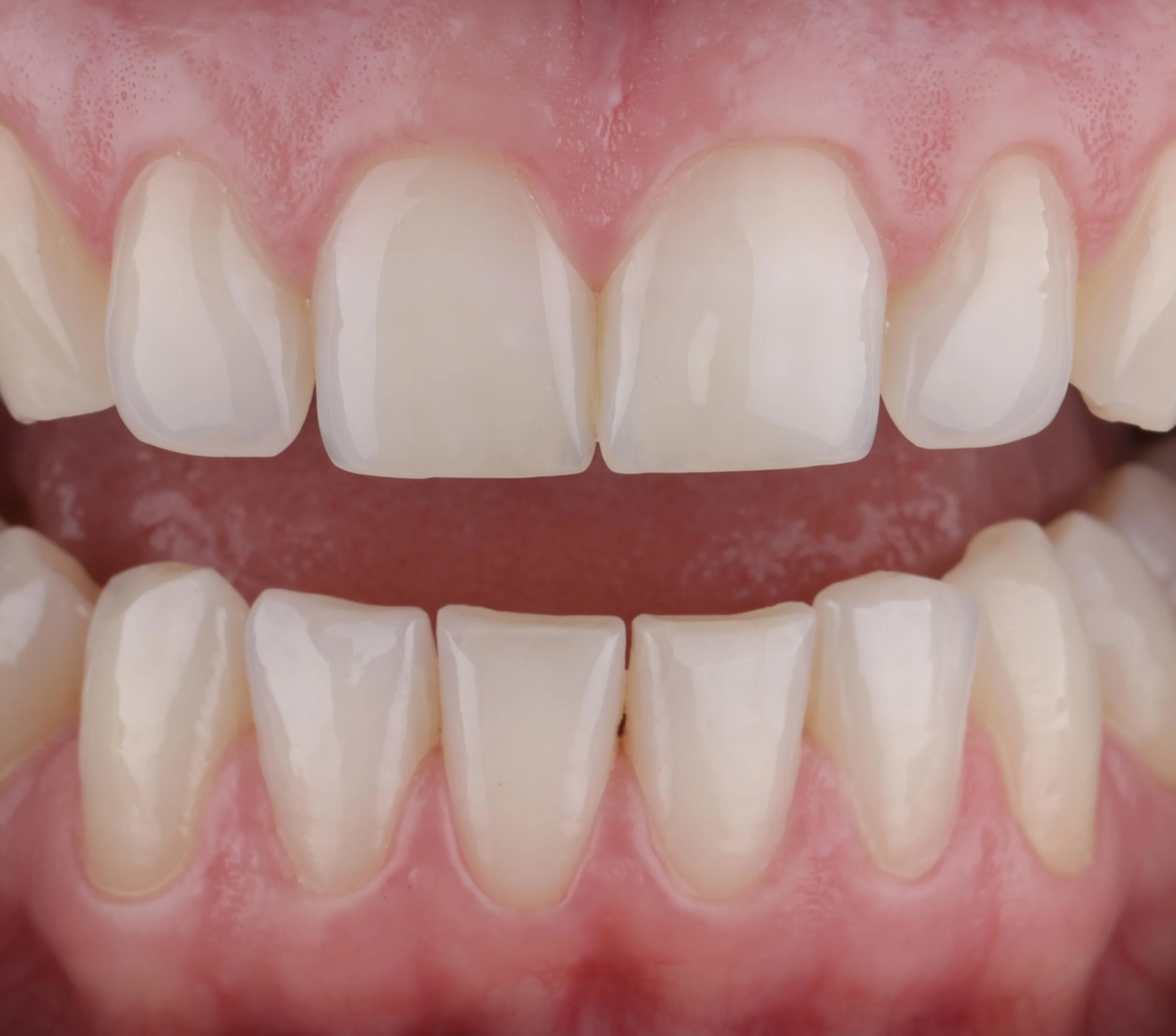What are sensitive teeth and why do they occur?
Have you ever flinched after taking a sip of cold water or enjoying an ice cream? Many patients say they feel a short, sharp pain as soon as the tooth comes into contact with something cold, hot, or acidic. This is a typical sign of sensitive teeth. Although it may seem like a minor inconvenience at first, tooth sensitivity can be a warning sign of more serious issues and a reason to visit a dentist.
At the Saraj dent dental clinic in Sarajevo, patients regularly come thinking that sensitivity is just a temporary problem. However, sensitive teeth are not a disease on their own, but rather a symptom. They indicate that the tooth’s protective layer – the enamel – has been weakened or damaged, or that the gums have receded, exposing the dentin. If left untreated, sensitivity can develop into more serious complications, including cavities or even periodontal disease.
The most common causes of tooth sensitivity
Sensitive teeth usually occur due to a combination of factors. Gum recession is one of the main reasons, as it leaves the tooth root exposed. Unlike the crown of the tooth, which is covered with strong enamel, the root is more vulnerable and prone to external stimuli, making pain and discomfort more noticeable.

Another common cause is enamel erosion due to the excessive consumption of acidic drinks such as soda, energy drinks, or too many citrus fruits. Even the way we brush our teeth can cause problems. Using a toothbrush that is too hard or brushing too aggressively wears down enamel and contributes to gum recession.
For some patients, sensitivity develops due to bruxism – unconscious teeth grinding, usually at night. Finally, we should not forget bad habits such as skipping regular dental check-ups, which allow small problems to grow into big ones.
Symptoms of sensitive teeth
The first sign of tooth sensitivity is pain that appears suddenly and briefly upon contact with cold, hot, sweet, or acidic food and drinks. Some patients also feel discomfort when simply touching the tooth with a toothbrush or dental floss. In the beginning, this may be rare, so people ignore it. But if it becomes more frequent, it’s a clear sign that it’s time to see a dentist. A dentist in Sarajevo or anywhere else can, with a simple examination, identify the real cause and recommend the best solution.
How to prevent sensitive teeth
Prevention of sensitive teeth begins with daily habits. Proper brushing is the foundation – that means using a medium-soft toothbrush and gentle, circular movements along the gum line. Brushing too hard or using a toothbrush that is too stiff often causes more harm than good.
Still, brushing alone is not enough, because most bacteria and food particles remain between the teeth. That’s why the daily use of dental floss is of great importance. Floss helps clean areas a toothbrush can’t reach and prevents plaque buildup, gum inflammation, and further sensitivity.
The role of dental floss and water flossers in prevention
For those who want even more thorough care, especially patients with sensitive gums or orthodontic appliances, a great choice is the oral irrigator (water flosser). With a gentle stream of water, it rinses the spaces between teeth and below the gum line, providing extra protection. For patients who grind their teeth at night, a dentist may recommend a protective night guard.
When should you visit a dentist?
It’s important to stress that sensitive teeth should never be treated on your own. Toothpastes for sensitive teeth can relieve discomfort, but if the problem is deeper, proper dental treatment is required. Sometimes the cause is a cavity, a crack, or a damaged filling, which can only be resolved at the dentist’s office. In more serious cases, when dentin is highly exposed or when gum recession is significant, professional treatments such as periodontal therapy are necessary.
Are dental treatments expensive?
Many patients ask whether visiting a dentist for this type of problem is expensive and whether it’s worth it. The answer is simple: prevention and early treatment are always easier and more affordable than long-term therapies required when the problem is ignored. Once sensitivity turns into pain, treatment becomes more complex and may include more extensive procedures.
That’s why the best decision is to act immediately. At Saraj dent dental clinic in Sarajevo, we approach each patient individually and choose the solution that best fits their condition and lifestyle.
The most common myths about sensitive teeth
One common myth is that sensitive teeth only affect older people. In practice, we increasingly see young patients with problems caused by the excessive consumption of energy drinks, improper brushing, or nighttime grinding. Another misconception is that sensitivity simply means the tooth is “a little worn down” and nothing can be done. The truth is that sensitive teeth are a warning sign that something is wrong and action is needed.
A third myth is that the problem will go away on its own. Unfortunately, without proper dental treatment, sensitivity usually gets worse over time.
The link between sensitivity and other dental problems
Tooth sensitivity should not be viewed in isolation, as it often signals other dental problems. It can be an early sign of periodontal disease, cavities, or even systemic health conditions that affect the teeth and gums. A dentist can, through a thorough examination, determine whether sensitivity is just a minor inconvenience or a warning sign of something more serious.
That’s why we always advise patients not to delay a check-up and not to wait until the pain becomes part of daily life.
Saraj dent’s approach to sensitive teeth
At Saraj dent dental clinic, we believe that prevention begins with education. When patients understand why sensitivity occurs and how to prevent it, they adopt healthier habits more easily. During check-ups, we explain how to brush teeth properly, which type of toothbrush to use, and the correct way to use dental floss. We also show patients how to reduce the risk of gum recession.
When needed, we perform professional treatments that reduce sensitivity and strengthen teeth. Our goal is for every patient to leave the clinic not only with relief but also with the knowledge of how to prevent the problem from returning.
Conclusion: don’t ignore the first signs
The conclusion is simple – sensitive teeth are not a disease, but they are an important symptom. If you react in time, the problem can be quickly resolved and more serious complications prevented. If ignored, the consequences can be long-term and require complex procedures. Prevention is always the best choice, and the first step is a visit to the dentist.
If you notice that your teeth react to cold, hot, or sweet, don’t wait. Contact your dentist. If you are in Sarajevo and looking for a clinic that will listen, identify the real cause, and offer a lasting solution, Saraj dent is always here for you.

